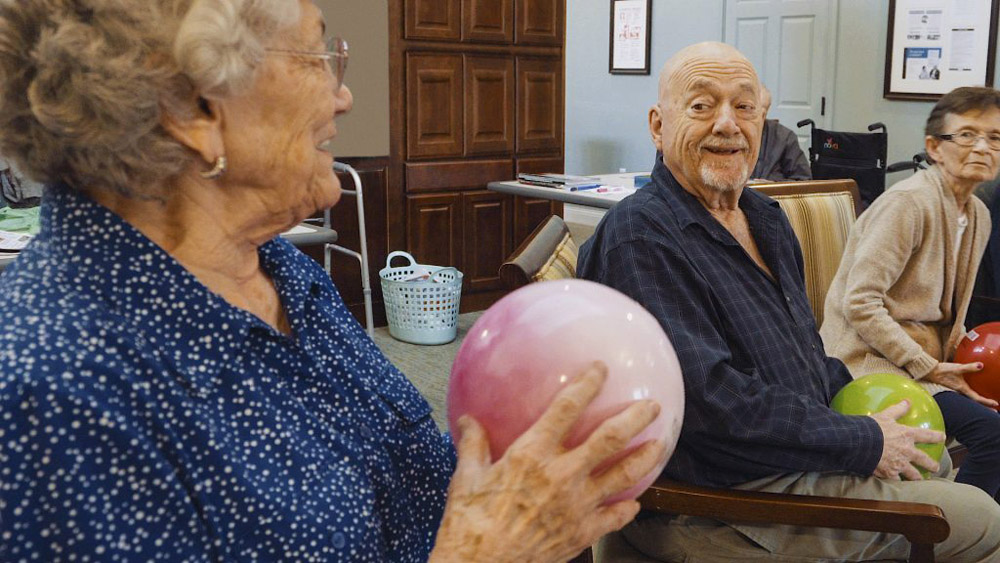Discover Compassionate Memory Care: Enhancing High Quality of Life for Loved Ones
The trip of taking care of a liked one with cognitive disabilities offers unique obstacles that can profoundly affect family members dynamics and psychological wellness. Caring memory care facilities provide a structured, encouraging setting developed to attend to these difficulties while enhancing the top quality of life for locals. By concentrating on personalized care and purposeful interaction, these facilities not just uplift those influenced by conditions like Alzheimer's and dementia yet also supply comfort for households. As we explore the crucial aspects of compassionate memory care, it comes to be clear that comprehending these choices can make a considerable distinction in the lives of all involved.

Recognizing Memory Care
Understanding memory care includes acknowledging the specialized support and services created to assist people with cognitive problems, such as Alzheimer's illness and various other types of mental deterioration. Memory care facilities concentrate on creating a safe and structured setting that promotes the wellness of homeowners while resolving their one-of-a-kind cognitive challenges.Key elements of memory care include trained team who are experienced regarding the complexities of mental deterioration and associated conditions. These specialists employ evidence-based methods to improve cognitive function and maintain dignity via individualized care plans. The physical environment is also tailored to reduce confusion and promote familiarity, typically featuring safe locations to avoid wandering. Memory Care Charlotte.Moreover, memory care emphasizes social engagement and purposeful tasks that promote cognitive capacities and foster connections among residents. This strategy acknowledges the value of maintaining social communications to deal with isolation often experienced by people with memory loss.Families play a necessary function in memory care, as their involvement helps develop a helpful network that enriches the lives of citizens. By comprehending the specialized nature of memory care, family members can make enlightened decisions to boost the high quality of life for their loved ones dealing with cognitive disabilities
Key Features of Compassionate Care
Caring care in memory care setups is characterized by an all natural method that focuses on the emotional and mental wellness of locals. Secret functions of this method include individualized care plans customized per homeowner's unique needs, preferences, and life history. This customization cultivates a sense of identification and belonging, which is vital for those experiencing cognitive decline.Another crucial function is the visibility of experienced team who are not only skilled in mental deterioration care but also thoughtful and compassionate. These caregivers take part in significant communications, utilizing strategies such as recognition therapy to link with residents and lower feelings of disappointment or anxiety.Additionally, compassionate care atmospheres prioritize sensory stimulation and restorative tasks that reverberate with homeowners' passions. This might consist of art therapy, music sessions, and reminiscence activities, all created to improve cognitive function and emotional connection.Furthermore, family involvement is urged, enabling loved ones to take part in care activities and support their family participant's psychological demands. Ultimately, the key features of caring care create a setting where citizens really feel risk-free, valued, and understood, significantly boosting their lifestyle.
Benefits for Homeowners and Households

Tasks That Foster Engagement
Purposeful activities play an important duty in fostering engagement amongst residents in memory care setups. These activities not only boost cognitive function but also promote social interaction, emotional well-being, and a feeling of objective. Tailored programs that consider residents' interests and capabilities are important for optimizing participation and enjoyment.Creative quests, such as paint, crafting, or music therapy, urge self-expression and can stimulate pleasant memories. Structured exercise sessions, including chair yoga or walking groups, boost physical health while supplying opportunities for socialization. Additionally, reminiscence treatment, which includes discussing previous experiences and notable life occasions, can strengthen connections in between homeowners and caregivers.Incorporating interactive video games, challenges, and also gardening can even more stimulate cognitive interaction and foster synergy amongst residents. Regularly arranged team tasks, such as flick evenings or themed parties, create a feeling of area, permitting residents to build relationships and share experiences.Ultimately, the application of varied tasks tailored to specific choices is important in memory care. By promoting interaction with purposeful programming, facilities can significantly improve the lifestyle for citizens, guaranteeing they really feel valued and attached within their neighborhood.
Picking the Right Memory Care Facility
Picking a memory care center includes mindful consideration of different aspects that affect the well-being of locals. Begin by examining the center's overall environment, ensuring it is secure, welcoming, and created to lower complication. Try to find areas that urge social interaction while providing personal privacy for individual reflection.Next, assess the qualifications and training of the personnel. Caring for people with memory disabilities calls for specialized expertise. Confirm that staff participants receive recurring training in dementia care and utilize thoughtful interaction techniques.Additionally, think about the array of services provided, such as individualized care strategies, restorative activities, and assistance for relative. A facility that stresses holistic care can significantly boost the high quality of life for residents.Visit potential centers to observe communications between team and locals, and ask concerning their approach to engaging those with memory difficulties. Inspect testimonials and look for suggestions from medical care specialists or regional assistance groups.Lastly, consider the center's location and access for household visits, as routine get in touch with can boost locals' psychological wellness. By taking these variables into account, you can make a knowledgeable choice that finest supports your liked one's demands.
Regularly Asked Concerns
What Credentials Do Memory Care Personnel Normally Have?
Memory care staff usually hold certifications that consist of specialized training in mental deterioration and Alzheimer's care, as well as accreditations in emergency treatment and mouth-to-mouth resuscitation. Several have backgrounds in nursing or community service, supplying them with essential skills in client evaluation and emotional assistance. Alzheimer’s Care. Additionally, continuous education in behavioral administration techniques and communication strategies prevails, guaranteeing personnel continue to be proficient at dealing with the special demands of people with cognitive impairments while cultivating a helpful atmosphere
How Can Households Join Their Family member's Care?

What Is the Expense Variety for Memory Care Services?
The cost variety for memory care solutions can vary significantly based upon aspects such as area, facility amenities, and level of care needed. Usually, households might expect to pay in between $4,000 and $8,000 each month. Added solutions, specialized programs, and private accommodations can further affect pricing. Memory Care. It is advisable for families to extensively research study and browse through centers to comprehend what is consisted of in the fees and check out monetary support options readily available
Exist Particular Dietary Options Available for Homeowners?
Yes, several memory care centers supply customized nutritional alternatives to satisfy the specific dietary requirements of citizens. These options generally consider various dietary limitations, such as diabetes, heart health, or allergic reactions. Facilities frequently utilize qualified dietitians to create dish plans that advertise general well-being while thinking about individual choices. Furthermore, family participants are normally motivated to join conversations pertaining to dietary selections to assure that their loved ones' tastes and requirements are valued.
Exactly How Are Emergencies Managed in Memory Care Facilities?
Emergency situations in memory care centers are managed via established protocols created to guarantee resident safety and security and speedy action. Staff are learnt emergency treatments, including very first help and evacuation strategies - Memory Care Charlotte. Facilities conduct regular drills to plan for various circumstances, such as medical emergency situations, fires, or natural calamities. Additionally, interaction systems are in location to sharp staff and emergency situation solutions without Memory Care Charlotte delay, guaranteeing that homeowners receive instant focus and care during important situations
Comments on “How Alzheimer’s Care Teams Handle Behavioral Challenges”